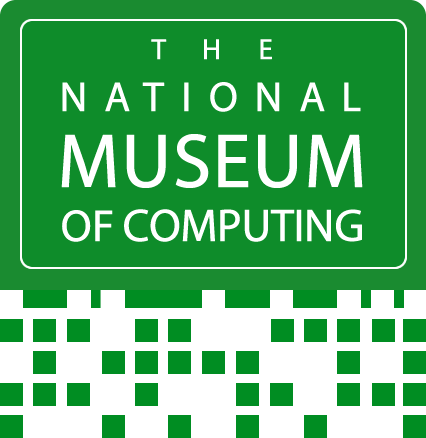Rory Cellan-Jones receives Honorary Fellowship from The National Museum of Computing for his services to technology education
/The National Museum of Computing (TNMOC), an independent charity has announced that esteemed technology broadcaster, Rory Cellan-Jones has been awarded an honorary fellowship of the museum. The fellowship recognises outstanding contributions towards the history and ongoing development of computing, with Cellan-Jones receiving the honour as a result of his significant, and quality contribution to advancing public knowledge and understanding of the history, culture, science, technology, and practice of computing.
The revered ‘BBC lifer’ who has spent his entire journalistic career at the BBC, originally as a researcher, followed by reporting on business and economics before moving into technology, has had a front row seat to the most pressing tech news for over 40 years. As such he has been pivotal in the reporting of these stories; from the dot com crash and the rise of online retailing, to the cultural impact of the internet and more recently the impact the pandemic has had on the technology industry.
With no formal background in technology, Cellan-Jones is described by the BBC as "the non-geek's geek" due to his ability to communicate the biggest technology stories to a non-specialist audience in an engaging way. He is also a published author, with his first book ‘Dot.Bomb’, which was originally published in 2001 telling the story of how the dot com tide swept over Britain and what was left when it receded.
Earlier this year, he published his second book, ‘Always On: Hope and Fear in the Social Smartphone Era’ which Stephen Fry reviewed as a “delightfully insightful and intensely readable history combining the personal with the objective.” TNMOC recognises the significant contribution this book has had in charting recent computer history, from the launch of the revolutionary Apple iPhone in 2007, through the rise of social media and the technology giants, to today’s dependence on smart devices.
As a long-term advocate for a greater focus on technology education, Cellan-Jones also donates his time to ‘Speakers for Schools,’ a charity which aims to end educational inequality to young people through providing talks from today’s most influential figures. As part of this programme, Cellan-Jones is known for his engaging talks on modern computing issues such as security and fake news, while also engaging with students over the pros and cons of gaming consoles and showcasing innovative technologies.
The TNMOC fellowship recognises these outstanding and lasting contributions and brings Cellan-Jones’ unrivalled insights on the impact of the internet and digital technology on our lives and businesses to bring new, expert insights to the museum. His ability to distil complex topics and convey them to the public in an engaging and understandable way will aid the museum in ensuring its educational programmes grow even stronger.
Upon receiving the fellowship, Rory Cellan-Jones commented: “It’s an honour to receive this fellowship and I’m incredibly grateful to have even been considered. I have long admired the work that The National Museum of Computing does and look forward to helping communicate the importance of its collection and its educational mission.”
The Museum’s director, Jacqui Garrad added, “Rory Cellan-Jones’ understanding of the biggest tech issues in today’s world, his expertise on computing, and his work around engaging school children’s curiosity and ambition in the world of technology make him the perfect honorary fellow for The National Museum of Computing. We’re thrilled to have his expertise onboard and look forward to expanding our educational programmes with his help.”
About The National Museum of Computing’s Honorary Fellowship programme
TNMOC’s mission statement is “to bring to life the history and ongoing development of computing for inspiration, research, learning and enjoyment for the benefit of general and specialist publics of all ages.”
The Honorary Fellowship programme supports that mission by recognising outstanding individuals who have made a significant and lasting contribution to the field.
Contributions may take different forms, including but not limited to:
Advancing the science, technology, and practice of computing
Advancing public knowledge and understanding of the history, culture, science, technology, and practice of computing
Advancing the diffusion of knowledge of computing through education and writing
Advancing the standing of the National Museum of Computing in the wider world, developing and promoting fruitful relationships between the museum and other organisations.
As an honorary fellow of The National Museum of Computing, Rory Cellan-Jones joins the esteemed company of Margaret and Anthony Sale, who were both pivotal in the 1992 campaign to save Bletchley Park and Professor Brian Randell, whose historical research led to a wider public recognition of the importance of Colossus to computing as we know it today.
About The National Museum of Computing
Located on Bletchley Park as an independent museum, The National Museum of Computing brings to life the history and ongoing development of computing for the enjoyment and benefit of the general public and specialists.
The museum combines a distinctive approach to engagement with an emphasis on British computing heritage and ongoing innovation. TNMOC acquires, conserves, restores and rebuilds historic computing machinery. Our approach is furthered through a process of engagement, with the display and demonstration of historical systems. The museum runs a highly successful learning programme for schools and colleges and introduces computer coding to young people to help inspire the next generation of computer scientists and engineers. The museum also runs a popular, ongoing program of festivals, lectures and interpreted displays and interactive events.



